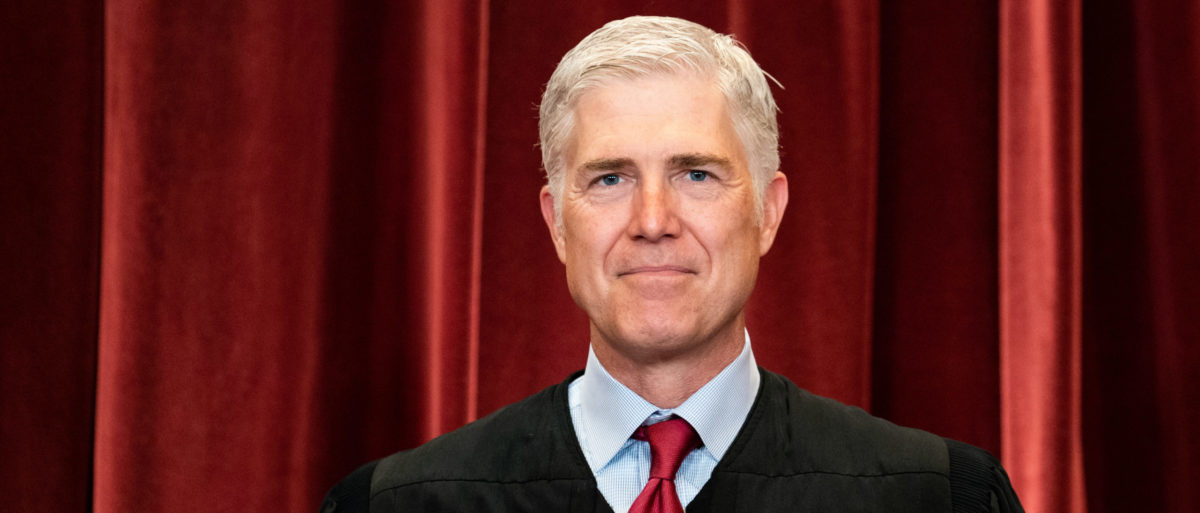The Supreme Court ruled 5-4 Thursday that the federal government does not need to take affirmative steps to secure water for the Navajo Nation, reversing the Ninth Circuit’s decision.
The case, Arizona v. Navajo Nation, questioned whether the federal government has an obligation to meet the Navajo Nation’s water needs under the 1868 treaty that established the reservation. Justice Brett Kavanaugh wrote in the majority opinion, which was joined by Chief Justice John Roberts and Justices Clarence Thomas, Samuel Alito and Amy Coney Barrett, that the treaty does not require the United States to take steps such as “assessing the Tribe’s water needs, developing a plan to secure the needed water, and potentially building pipelines, pumps, wells, or other water infrastructure.”
“[T]he United States has no duty to farm the land, mine the minerals, or harvest the timber on the reservation—or, for that matter, to build roads and bridges on the reservation,” he wrote. “Just as there is no such duty with respect to the land, there likewise is no such duty with respect to the water.” (RELATED: Supreme Court Hears Pivotal Water Rights Case As Drought Grips Western States)

WASHINGTON, DC – APRIL 23: Associate Justice Neil Gorsuch stands during a group photo of the Justices at the Supreme Court in Washington, DC on April 23, 2021. (Photo by Erin Schaff-Pool/Getty Images)
“In light of the treaty’s text and history, we conclude that the treaty does not require the United States to take those affirmative steps,” Kavanaugh wrote.
Justice Neil Gorsuch filed a dissenting opinion disagreeing that the tribe was even asking the government to take “affirmative steps” to secure water, writing that the request was “far more modest.”
“Everyone agrees the Navajo received enforceable water rights by treaty. Everyone agrees the United States holds some of those water rights in trust on the Tribe’s behalf. And everyone agrees the extent of those rights has never been assessed,” he wrote. “Adding those pieces together, the Navajo have a simple ask: They want the United States to identify the water rights it holds for them.”
Justices Sonia Sotomayor, Elena Kagan and Ketanji Brown Jackson joined Gorsuch’s dissent.
Gorsuch also broke with the majority to side to defend Native American tribes in another recent case, Lac du Flambeau Band of Lake Superior Chippewa Indians v. Coughlin, filing a solo dissent advocating for tribes’ “unique status in our law.”
In Haaland v. Brackeen, Gorsuch joined the 7-2 majority to uphold the Indian Child Welfare act, a law that requires preference be given to Indian families when making adoption placements for Indian children.
During oral arguments in March, the water shortage facing the West came to a head as Arizona and other states expressed concern that a ruling for the Navajo Nation could jeopardize their own claims to the Colorado River under the existing agreement. The lawyer for the Navajo Nation pointed to the difficult situation on the reservation, where residents use just seven gallons per day compared to the average American’s 88 gallons.
The tribe is located mostly within the Colorado River Basin but does not have rights to the main stem of the river.
This is a breaking news story and will be updated.
All content created by the Daily Caller News Foundation, an independent and nonpartisan newswire service, is available without charge to any legitimate news publisher that can provide a large audience. All republished articles must include our logo, our reporter’s byline and their DCNF affiliation. For any questions about our guidelines or partnering with us, please contact licensing@dailycallernewsfoundation.org.


